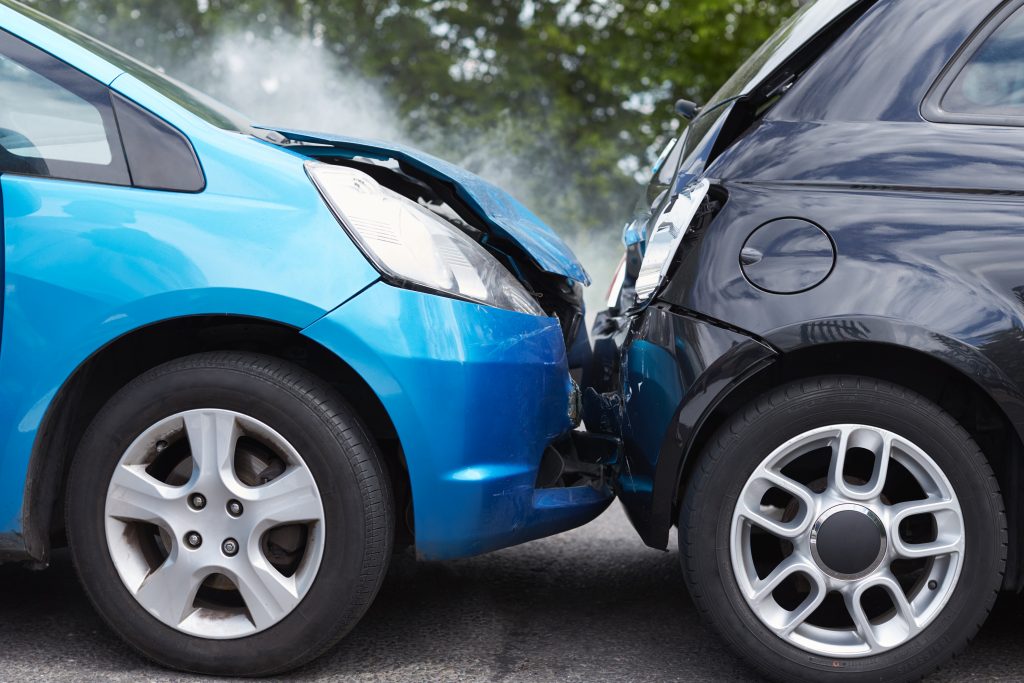2021 will be the year of autonomous vehicles. One of the biggest players is Tesla. The electric car company will be releasing its ‘full self-driving’ feature for its vehicles as a subscription in early 2021. Experts are predicting that autonomous vehicles could result in a 30 percent increase in total vehicle traffic in congested cities such as Toronto, Vancouver, and Montreal.
As more vehicles enter the market with automated driving features, concerns surrounding safe driving laws are triggered. Safe driving is a concern for society as a whole. How do self-driving vehicles complicate distracted driving laws in Canada? Dangerous driving? Driving without due care and attention?

The Dangers of Distracted Driving

In Canada, distracted driving is defined as partaking in actions while driving that shift the driver’s attention from the road. The Canadian Council of Motor Transport Administrators defines distracted driving as “the diversion of attention from driving as a result of the driver focusing on a non-driving object, activity, event or person.” Offences for distracted driving could include eating or drinking, talking on a phone, reading, or smoking while driving. The National Safety Council reports that drivers could fail to see 50 percent of their driving environment if they look away from the road for even just a few seconds.
According to the Canadian Automobile Association, distracted driving is a factor in four million crashes every year in North America. In 2016, distracted driving contributed to 21 percent of collisions resulting in death and 27 percent of collisions resulting in serious injury (Canada Safety Council, 2019). Even more alarmingly, in some parts of Canada, the number of distracted driving fatalities surpassed the impaired (drunk or drugged) driving fatalities in 2019.
Safe Driving Laws in Canada and Self-Driving Features
Distracted driving laws exist in every province and territory with the exception of Nunavut. Generally speaking, distracted, impaired, or dangerous driving are serious offences that will result in large penalties.
New Brunswick is taking stringent measures to discourage distracted driving. The province implemented harsher charges for drivers in 2021. Effective January 1, 2021, the Motor Vehicle Act was updated to include several new provisions, including increased fines for distracted driving.

Dangerous driving is a serious Criminal Code offence. In British Columbia, an accused convicted of dangerous driving will automatically receive a minimum of a one-year driving prohibition under the Motor Vehicle Act. A legal first occurred in B.C. as a man was accused of dangerous driving for allegedly sleeping in a self-driving vehicle. The vehicle was operating in its autopilot feature, which is only meant to assist drivers.
According to Supt. Gary Graham of Alberta RCMP Traffic, these types of vehicles still come with responsibilities for the driver. In this case, the driver was held responsible for distracted driving, as the car was not meant to be driven without any human intervention. Full self-driving vehicles could potentially pose a bigger threat, as they can operate without the driver’s full attention. How can Canadian lawmakers protect against distracted driving if self-driving cars don’t require the driver to steer or guide the vehicle?
Full Self-Driving Vehicles’ Safety
In March 2018, a self-driving car operated by Uber hit and killed a woman in Tempe, Arizona. The Tempe Police Department released a report stating that the driver was streaming the television show “The Voice” on her phone in the minutes leading up to the crash. This case was the first pedestrian death involving self-driving technology.

After investigations, the US National Safety Board and police found that human error was to blame for the accident. They concluded that the driver would have been able to take over the vehicle in the case of an emergency. Ultimately, the National Transportation Safety Board found that the driver was visually distracted. Uber did not face any criminal charges, while the safety driver pleaded not guilty. The driver’s trial is set for February 2022. Although the driver was occupying a fully self-driving vehicle, investigators and police warn that drivers still need to take responsibility for their safety.
On the other hand, some people wonder whether self-driving vehicles may be the answer to lessening the number of distracted drivers in Canada. The argument is that fully autonomous vehicles are equipped with technology that can identify and avoid risk. Further, some experts predict that fully autonomous vehicles will reduce the number of collisions due to impaired driving, distraction, and poor road conditions.
Despite new technologies allowing vehicles to drive themselves, it remains vitally important for everyone on the road to remember that vehicles can be extremely dangerous if not handled properly. New technology can greatly improve levels of safety in many different industries, but only if they are used as intended.
Canada Criminal Lawyer is a network of independent lawyers. We are a resource for criminal defence lawyers looking for prospective client leads and for accused that would like to learn about the criminal justice system. Each Canadian lawyer fields client calls from one area code.

